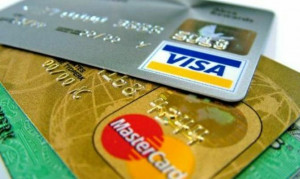Therefore our topics this week are all critical pieces of your overall money management plan.
Your budget should be designed such that your expenses are aligned to your pay period schedule. So for example, if you are paid biweekly, then you should have a bi-weekly budget.
Put your pay dates across the top of the budget.
Put your income sources and expenses in the first column of the budget.
In recording income, put in your net pay. Include any other income you will receive before the next pay period (eg, expense reimbursement cheques). If you have to use money from a bank account to assist in the current month’s expenses, include that as part of your income for the month.
In recording expenses, decide when they will be paid. This will depend on your pay dates. Start with expenses that have fixed due dates, and record those in the relevant pay period column. Try to even out your expenses over your pay periods.
Subtract expenses from your income. If income is left over, set this aside in a separate bank account, so that if required, you may use it in the next period to supplement that period’s expenses.
Use a separate bank account in which you deposit your lump sum income so that you don’t spend it all at once.
Pay yourself a fixed monthly amount based on what you can afford as well as your identified monthly obligations. You may find that you will need to supplement your funds with part time income. However, once you have set up the budget, then you will know exactly how much additional income you need, and how much more hours you may need to work to achieve it. This is especially important for students, as you don’t want to spend too much time earning part time income, at the expense of your studies. So for example, you may find that doing a 3 hour shift for 3 days a week, and one 5 hour shift on the weekend is all that you need.
Gather all your bills to be paid. Remove the budgeted income for the period, and update the budget with your actual income for the period.
Remove the budgeted expenses for the period, and update the budget with your actual expenses for the period.
Update the budget with unexpected or new expenses.
Revisit the new bottom line and take the appropriate action (i.e. cut expenses or increase your income).
Find a spot in your home for paying bills and filing documents.
Start a filing system (accordion folder, file cabinet). If you receive your bills electronically, then file them electronically in a readily accessible file on your computer.
Monitor your electronic and paper mail – make master list of all bills and the dates they usually arrive. Tick off once they arrive. It is best to maintain this on your computer, with an online calendar that gives notification of due dates. Missing bills could be sign of identity theft or fraud.
Pay bills on or before their due dates to avoid interest charges. Late payment of credit cards can affect your credit score.
Once payment is done, file all paid bills - either electronically, by scanning the paper copy, or in your accordion file or filing cabinet. When filing, distinguish between permanent records, birth certificates, marriage certificates, will, power of attorney, SIN card, health card, insurance policies, mortgage documents, loan documents, diplomas, temporary long term records – things you will need for tax returns, and required to keep for 7 years.
Child care expenses, charitable donations, medical expenses, RRSP contributions, tax returns, temporary short term records – utilities, phone bills, atm slips etc. can be destroyed after 1 year. Destroy records by shredding.
Keep a list of all the professionals you deal with, their contact information, and other very important information – ensure your next of kin, or some other trusted person has this information. The list is not exhaustive, but should include:
Bank account numbers and branch location
PIN, IDs and passwords
Safety deposit box and location
Doctor and health care provider
Health insurance #
SIN#
Location of wills
Location of income tax returns
Location of insurance policies
Location of passport
If you don’t have a steady pay cheque, or your income is received irregularly, you still can create a budget. In fact that is when you need it even more. This will apply for example, to seasonal workers, self-employed persons, consultants, real estate agents, commissioned employees or students.
Your monthly budget is a living and breathing document that must be maintained. It has to be adjusted for actual and unexpected events. Otherwise, it is a meaningless tool in your money management plan.
My suggestion is that you revisit your budget only at these critical times – when you get paid, and when an unexpected event occurs, or is about to occur, and it has to be planned for.
An essential piece of your money management plan is having a system in place that will facilitate your money management efforts. Some of the above points will seem mundane, but as I repeatedly say, these concepts are not new, they are actually so ordinary that we overlook their importance.
Our final article in the “Its your Money Series”, will deal with savings and credit cards.










